
If you have switched from Safari to Chrome on your iPhone, you will notice that the layout is different from what you are used to. It's not hard to find your way around Chrome, but the following tips are still helpful.
Note: The Chrome toolbar is displayed in portrait on the bottom and landscape on the top. We use the portrait mode below.
1. Add web pages to the reading list
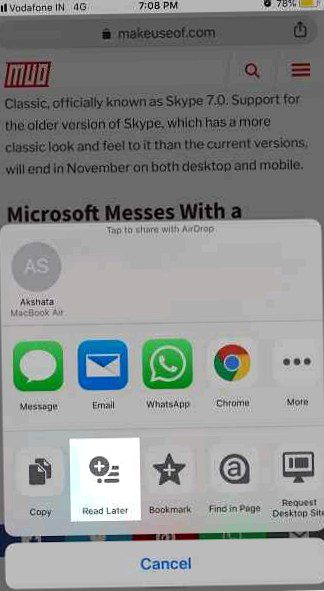
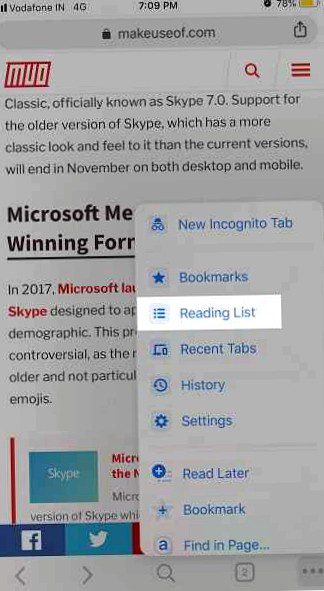
Chrome has a Safari-style reading list that lets you save web pages for later reading. To add a web page to this list, tap when you have activated the page stock in the address bar and then Read Later in the stock menu.
The option also appears in the More Options menu (look for the ellipsis icon in the toolbar). In this menu you can also find the reading list option. It leads to the list of web pages that you have saved for later.
In Chrome, you can also add web pages from other apps on your iPhone to your Chrome reading list. Accessing the read later option in another app, you need to enable chrome in the app share menu. If you need help with this step, take a look at our tips to master your iPhone and expand Share menu.
Once you've made the change you want, select Chrome while sharing a link, the Read Later option appears.
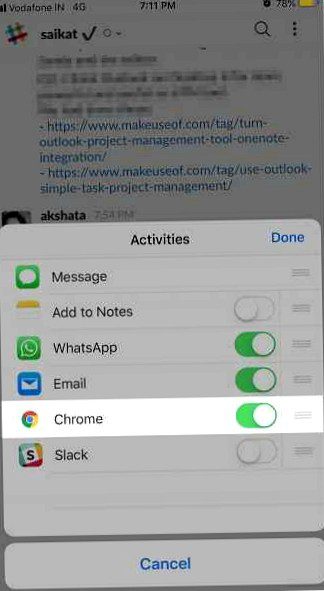
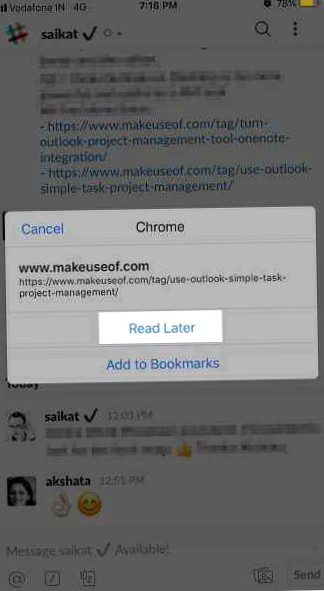
It's a shame Chrome hasn't implemented a "reader" view to give you a simplified version of web pages, but one that's easier to read.
2. Switch between tabs, reload pages, and more with gestures

Chrome makes your most-used browsing actions painless with gestures. Switching tabs is as easy as swiping across the address bar.
(If you want to jump to a specific tab, you'll need to use the map view or the tab switcher button, which is hidden behind the number icon on the toolbar. This number refers to the number of tabs you have open.)
To reload a web page, all you have to do is drag down the page and release when the reload button appears. See the New Tab and Close Tab buttons next to Reload? You can select it instead with this gesture, swiping left or right before releasing your finger.
You also have the option to move through the history of an active tab. Swipe from the left edge of the screen to go back a page, and from the right edge if you want to go forward.
By the way, why should you use browser gestures at all?.
3. Search with your voice


After opening a new tab, tap the microphone button embedded in the search box on the home page. You can now use your voice to prompt Google to find web addresses and keywords Voice search feature.
Of course, for the feature to work, you must first grant Chrome microphone access. Do this either when prompted, or from Settings> Chrome.
If you have already loaded a web page, you can voice search using the search button in the middle of the toolbar. Tap this button and you should see the microphone button above the keyboard that pops up. In landscape mode, the microphone button is displayed directly in the address bar.
You can also run a voice search from a third location, which we'll cover later.
4. Scan QR codes

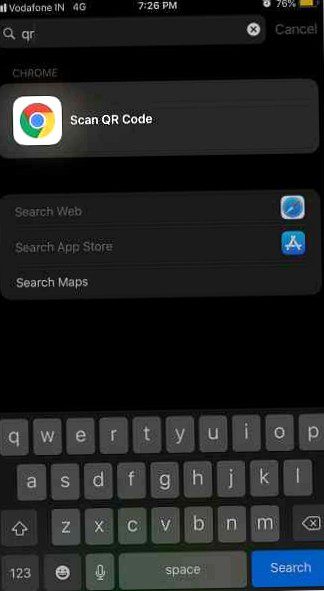
You can scan QR codes using your phone's Wallet app. This is also true for Notes. However, Chrome speeds up this action a bit with its built-in QR code scanner feature.
The QR code scan button is hidden behind the search button. (You can find it next to the voice search or microphone button we mentioned above.) Although this is not the fastest way to scan a code. Try a spotlight search for qr and you will see QR code scan as top result.
Better yet, keep the QR code scan button handy with the Quick Actions widget, which we'll discuss in the next section.
5. Add quick actions to the Today menu
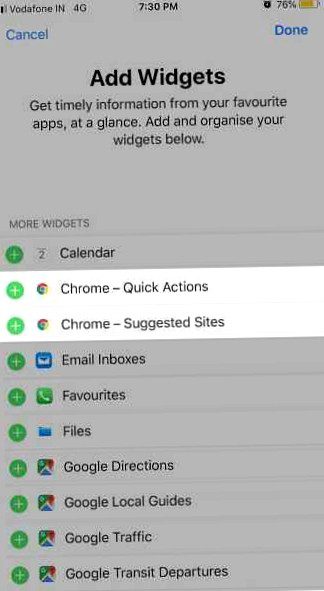
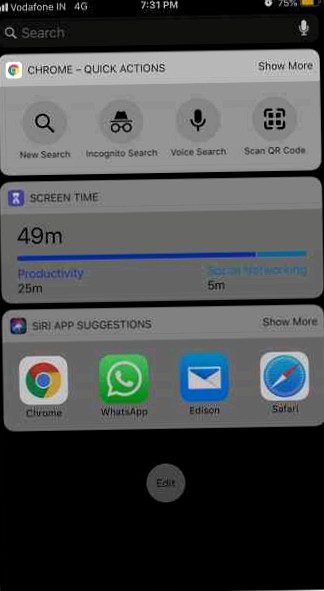
If you install Chrome, some useful widgets will be added to your phone Today Menu: Quick Actions and Suggested Pages.
You can quickly start a new search with the first widget. You can also trigger the QR code scanning feature, a voice search, and an incognito search.
To be able to use these functions, you must of course use the Quick Actions widget on the Today menu. To do this, first tap the Edit button in the Today menu. Next, tap the green "plus" button next to Chrome quick actions and then the Done button to wrap up.
6. Open tabs on other devices
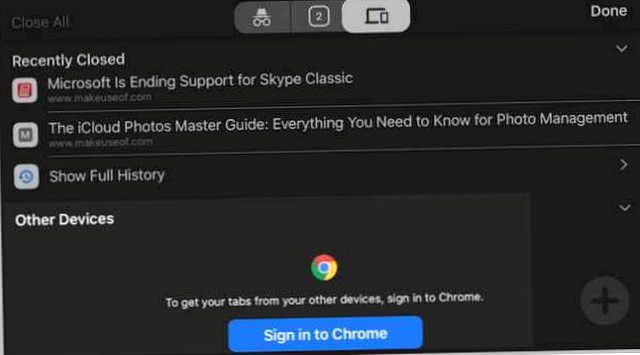
When you enter the tab switch and swipe left The Recent Tabs In this section, you'll find a list of the tabs you've recently closed. Below this list you can see all the tabs you have open on other devices.
To view the contents of the second list, you'll need to log in to Chrome using your Google credentials. You will see a prompt to do so. This list is handy when you're away from your desktop or laptop and want to quickly access a tab you've viewed on that device.
You can also click on the The last tabs section from a second place: the More options menu.
7. Use 3D touch actions


If your phone supports 3D Touch, you can do this "long press" your way to some important actions.
First open a new tab (even an incognito one) or close the active one by pressing the tab switcher button in the toolbar.
Now press the More Options button. When you do, you can slide your finger up and down the menu to highlight an option, and then release your finger to select it.
Press search You can quickly press the button on the toolbar to access voice search and QR code scan options.
If you want to jump from the current tab to a previously visited page? Press the left arrow (or back button) on the toolbar to view the tab history, and then tap the web page you want to view. Press the right arrow button and select an item to move forward.
You can also press the share button in the address bar to display copy and paste and go options.
Chrome vs. Safari on iPhone: why not both?
Browser wars are futile. There's no rule that says you have to stick with one browser. If you choose to use both Chrome and Safari, you should be proficient in both. In addition to these Chrome tips, don't miss these must-have Safari tips for iPhone users. 15 Essential Safari Tips and Tricks for iPhone Users 15 Essential Safari Tips and Tricks for iPhone Users An amazing number of useful actions in Safari for iOS are hidden behind long presses, gestures, and 3D Touch. Read more .